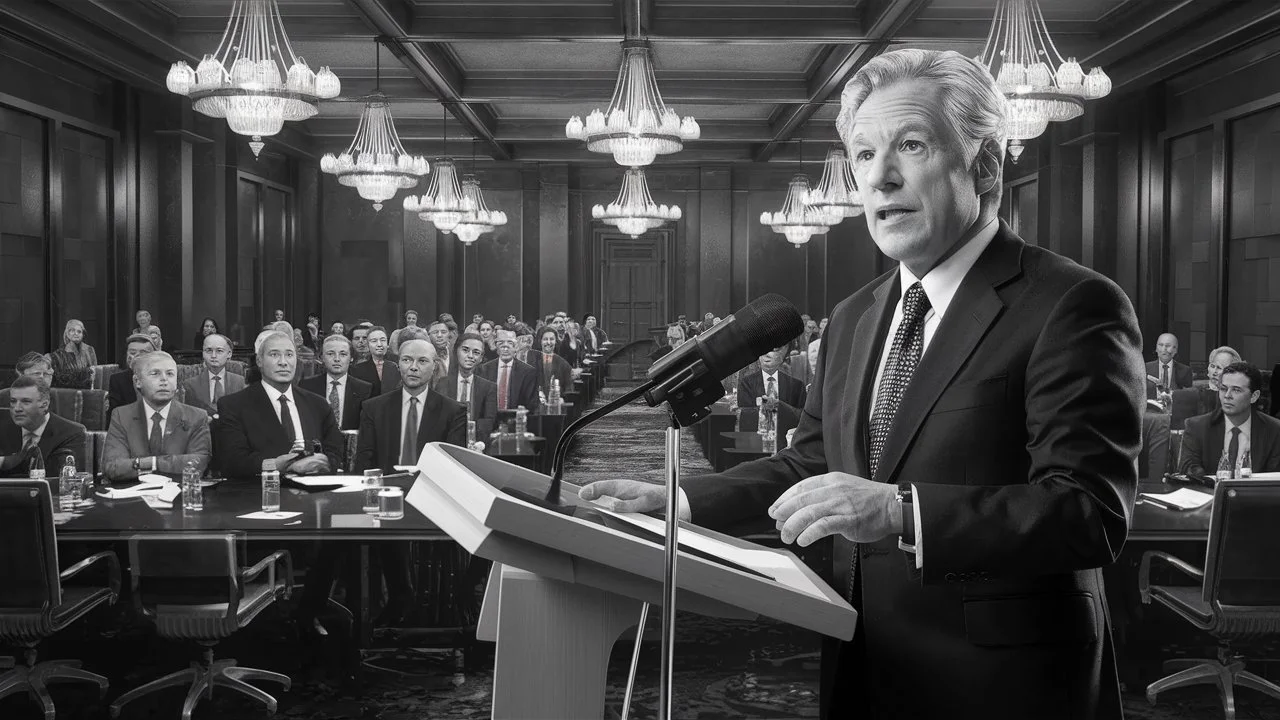Buckle Up! JPMorgan Chase CEO Warns of Economic Storm: High Inflation, Soaring Rates & Recession Looming
JPMorgan Chase CEO Jamie Dimon's recent annual letter sent a ripple of concern through the financial world. His forecast painted a picture of a potentially bumpy economic road ahead, characterized by persistent inflation, interest rates soaring to unprecedented levels, and the looming threat of recession or stagflation.
At the heart of these concerns lie two key factors:
Stubborn Inflation: Inflation, the relentless rise in prices, continues to be a headache for consumers and policymakers. The Federal Reserve, tasked with keeping inflation under control, is poised to raise interest rates to cool down the economy and slow price increases. However, Dimon expresses doubt about the ease of taming this inflationary beast. He points to ongoing government spending, the green energy transition with its associated costs, and geopolitical tensions as contributing factors to potentially sticky inflation.
The Interest Rate Tightrope: To combat inflation, the Federal Reserve is expected to embark on a series of interest rate hikes throughout 2024. However, Dimon suggests these hikes might need to be more aggressive than the market currently anticipates. His letter provocatively stated a belief that interest rates could climb as high as 8% or even more, a significant jump from the current levels hovering around 1%. Such a steep increase in borrowing costs could have a ripple effect throughout the economy, potentially slowing down growth and impacting businesses and consumers alike.
The confluence of high inflation and rising interest rates creates a precarious situation. The Fed needs to raise rates to control inflation, but excessively high rates could stifle economic activity and trigger a recession. This scenario, often referred to as stagflation, throws a double whammy at consumers, who face both rising prices and a sluggish job market. Dimon appears skeptical of the optimistic scenario where the Fed manages a "soft landing," suggesting the path forward might be more turbulent than anticipated.
Beyond the Headlines: What Does This Mean for You?
While Dimon's warnings are cause for concern, it's important to maintain perspective. Here are some key takeaways to consider as you navigate this uncertain economic climate:
Be Prepared for Higher Costs: Inflation is likely to remain a factor for some time. This means you might need to adjust your budget and spending habits. Create a budget, track your expenses, and look for ways to save on necessities.
The Interest Rate Rollercoaster: If Dimon's prediction holds true, borrowing costs for mortgages, car loans, and other credit products could increase significantly. Consider locking in lower rates for any upcoming loans, especially mortgages. Talk to your financial advisor or lender about fixed-rate options.
Stay Informed: Monitor inflation reports and the Fed's monetary policy pronouncements to navigate this uncertain environment.
Real Estate Market Realities: Finding Your Dream Home in Volatile Times
Dimon's warnings have significant implications for the real estate market, a sector heavily influenced by interest rates. Higher interest rates translate to higher mortgage payments, potentially reducing the purchasing power of potential homebuyers and putting downward pressure on housing prices.
In light of this, the traditional real estate advice of "dating the rate, marrying the house" takes on renewed relevance. This approach prioritizes finding your dream home and locking in a property you love, even if the initial interest rate isn't ideal. The rationale behind this strategy is that while rates might be high now, they are likely to fluctuate in the future. If rates do indeed fall, you can always refinance your mortgage to a lower rate and potentially enjoy significant savings over the life of the loan.
However, waiting for rates to fall comes with its own set of risks. Housing prices could continue to rise, especially in competitive markets, and qualifying for a mortgage in the first place might become more challenging if rates climb significantly.
The Art of the Real Estate Agent: Guiding You Through Uncertainty
Navigating this volatile market requires a skilled real estate agent acting as your trusted advisor. Here's what you can expect from a good agent:
Understanding Your Priorities: A good agent will take the time to understand your needs, budget, and risk tolerance. Are you prioritizing finding the perfect home now or securing the lowest possible interest rate?
Market Insights: Agents should stay informed about local market trends, including average home prices, inventory levels, and projected changes in interest rates. This empowers clients to make informed decisions.
Exploring All Options: Agents should present their clients with a variety of options, including the pros and cons of buying now versus waiting to refinance, exploring different loan programs, and negotiating with sellers to potentially offset higher interest rates.
The Bottom Line: Navigate Uncertainty with Knowledge and Planning
The economic outlook may be uncertain, but you're not powerless. By staying informed, carefully considering your financial situation, and working with a qualified real estate agent, you can
